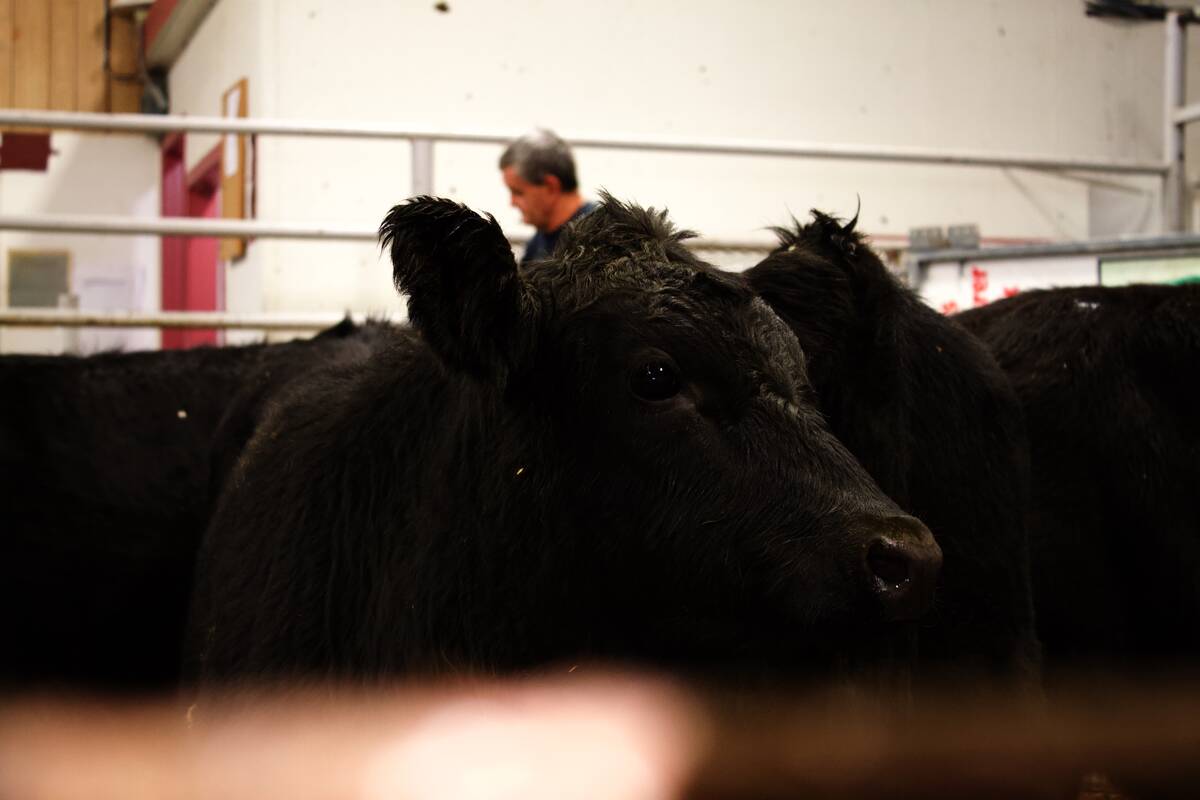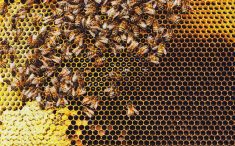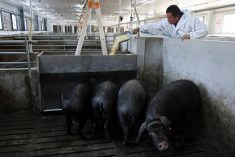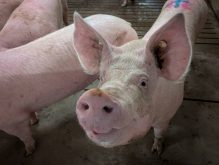Canada’s federal food inspectors on Monday called off their search for the source of bacteria found on some frozen retail beef burgers tied to E. coli-related illnesses in two provinces.
The Canadian Food Inspection Agency said Dec. 21 it has tested "all available" domestic beef ingredient products that went into one production day at Cardinal Meat Specialists’ federally-inspected frozen burger plant at Brampton, Ont. and found them all negative for E. coli O157:H7.
"Following extensive efforts, the CFIA has concluded that there is no evidence available to identify a source of contamination," the agency said in a statement Monday (Dec. 24).
Read Also

U.S. livestock: Cattle rally, hogs rise
Chicago cattle rallied on Monday. Lean hogs also rose. Most-active April live cattle futures closed at 239.525 cents a pound,…
Certain Butcher’s Choice and Cardinal brand burgers produced at the Brampton plant were recalled between Dec. 12 and 15 after samples tested positive for a specific strain of O157:H7 bacteria linked to a "small cluster" of illnesses — three in Ontario and two in Alberta.
Recalled burgers from a second production day were also confirmed to have E. coli O157:H7 but were not tied to any recent or current illness outbreaks, the agency said Dec. 17.
CFIA’s on-site inspectors verified Dec. 15 that the Brampton plant "is following appropriate food safety controls." The agency then turned its focus to the plant’s domestic and overseas sources of beef ingredients and spices.
Spices were ruled out on Dec. 21 as the source of the O157 contamination, followed by Cardinal’s beef product suppliers from Australia and New Zealand.
Beef coming to Brampton from those suppliers "met all import certification and testing requirements" and had not been linked to any cases of illness in those countries with the same O157:H7 genetic fingerprint.
With domestic sources now ruled out, "all lines of inquiry have been exhausted (and) the CFIA’s investigation will not progress further," the agency said Monday.
"Common source"
CFIA’s involvement in this probe started Dec. 5 when the Public Health Agency of Canada informed CFIA of the cluster of illnesses between early September and late November, with "possible linkages" to frozen burgers.
CFIA recently reacted to criticisms that suggested the agency should have recalled products when a single case of illness was reported in October. The agency said its investigation began "as soon as public health authorities determined that a cluster of cases were potentially linked to a common food source."
Taking action without such information "could result in missed or misdirected recalls, which would not protect consumers," CFIA said.
While the incidence of E. coli illness is declining annually, "it is important to note that at any given time there are multiple cases under investigation in Canada, and only some of these are ever linked to a food source," the agency said.
Furthermore, the agency said, "we all have a role to play in food safety, particularly when dealing with raw products."
In the case of ground beef, cooking the meat to at least 71 C fully destroys E. coli bacteria, CFIA said. Consumers should also make sure cooking surfaces and utensils are "well cleaned" with soap and water after coming into contact with raw beef.
Cardinal, a family-owned operation that began producing ready-made burgers for restaurants and small retailers at Mississauga in 1966, was making 3.6 million patties per week by 2010.
The company launched "Butcher-style" burgers in 2008, after becoming the first beef processor in North America to adopt the equipment it uses for its "Natural Texture" ground beef forming process.
Related stories:
Burger probe turns toward domestic beef suppliers, Dec. 21, 2012
Ont. E. coli probe shifts to burger plant’s suppliers, Dec. 18, 2012
Burger recall widens as E. coli illnesses investigated, Dec. 14, 2012














